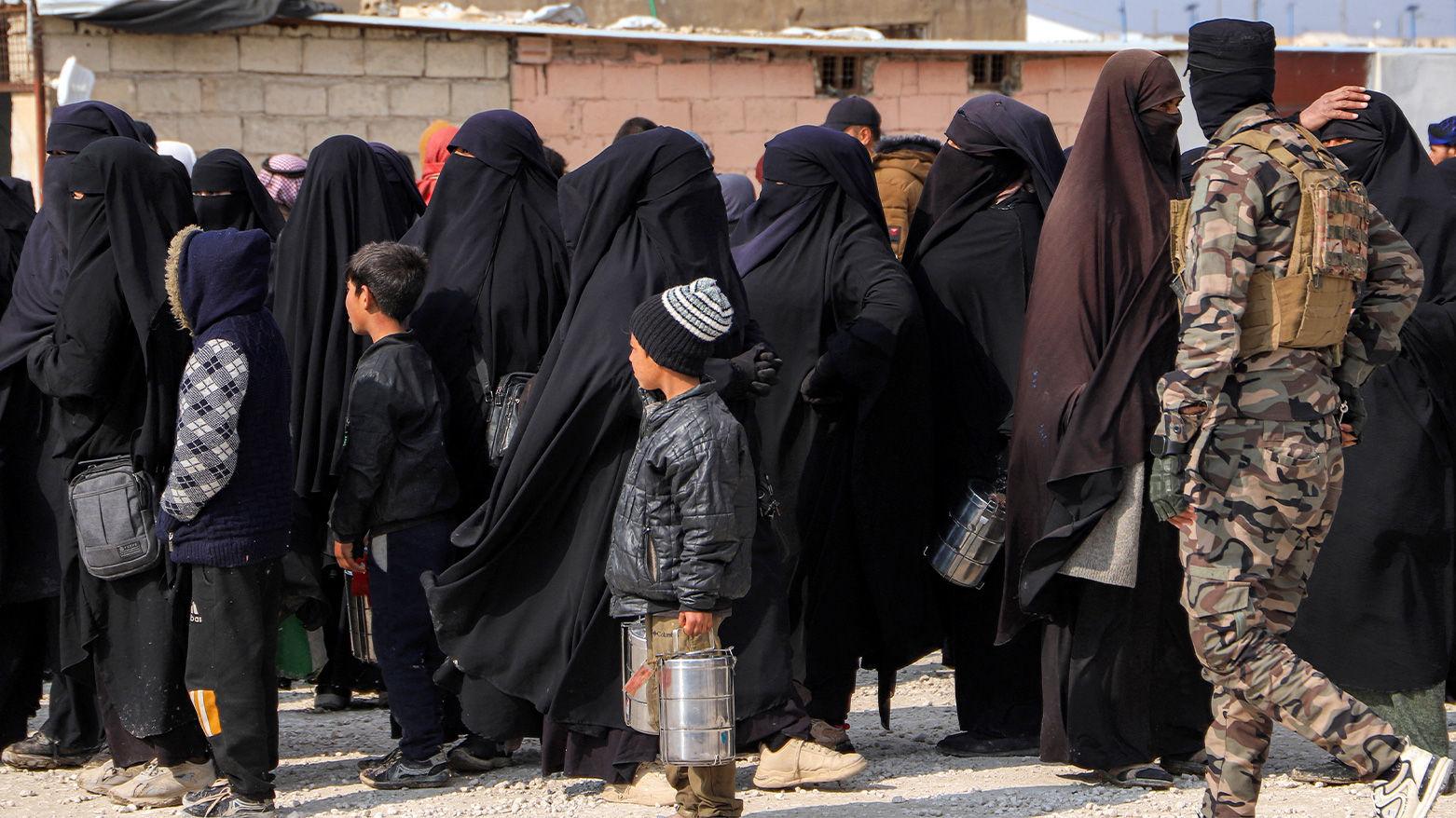US Aid Cuts Threaten Security, Humanitarian Stability in Northeast Syria: The Guardian
As reported by The Guardian, the looming halt in assistance threatens to cripple basic services in the al-Hol and al-Roj detention camps, where thousands of suspected ISIS members and their families are held.

ERBIL (Kurdistan 24) – Kurdish officials have issued stark warnings about a potential resurgence of the Islamic State (ISIS) if impending US foreign aid cuts take effect, endangering the fragile security and humanitarian conditions in northeast Syria.
As reported by The Guardian, the looming halt in assistance threatens to cripple basic services in the al-Hol and al-Roj detention camps, where thousands of suspected ISIS members and their families are held.
The Virginia-based humanitarian group Blumont, which manages these camps, was ordered to cease operations on January 24 by the US State Department.
The suspension triggered panic among detainees and camp administrators alike, as essential services, including food distribution and medical aid, ground to a halt.
A temporary waiver was granted three days later, extending operations for two weeks, but unless renewed, this critical aid will expire on Monday, exacerbating the already dire conditions.
A Brewing Humanitarian Catastrophe
The al-Hol camp, home to thousands of women and children linked to ISIS fighters, remains a volatile environment.
As The Guardian reported, Kurdish officials stress that these detention centers serve as hotbeds of extremist ideology. "Even if a normal person enters the camp, they eventually will be psychologically affected. The violent behavior is really high among the kids and women," said Jihan Hanan, the director of al-Hol camp.
US-backed Kurdish forces (Syrian Democratic Forces or SDF) have long argued that ISIS ideology continues to thrive within these detention facilities.
The security risks extend beyond ideological indoctrination—cases of violence against aid workers, as well as radicalization efforts among younger detainees, have been documented. If aid is cut, officials fear that growing unrest could lead to riots or even attempts by ISIS-affiliated individuals to escape, destabilizing the region further.
Geopolitical Implications and US Policy Shifts
The US has maintained a military presence in northeast Syria since 2014, training and equipping Kurdish forces to combat ISIS.
However, The Guardian highlights that the Trump administration's recent decision to reassess US aid projects has sparked uncertainty regarding Washington’s long-term commitment.
The abrupt policy shift has left humanitarian groups, diplomats, and military officials scrambling for clarity.
A blanket waiver for "life-saving assistance" has been issued by US Secretary of State Marco Rubio, allowing humanitarian organizations to apply for exemptions.
However, aid agencies remain uncertain about which programs will be sustained, creating a precarious situation for those on the ground.
A previous instance in late January demonstrated the risks of such uncertainty—when aid was briefly suspended at al-Hol, Kurdish authorities were forced to scramble to procure basic necessities, including 5,000 bags of bread for a single day’s sustenance, an expense they struggled to cover.
Escalating Security Concerns
With the looming cuts, Kurdish forces and camp administrators fear that a security vacuum could emerge, playing into the hands of IS sleeper cells.
The director of Panorama prison in al-Hasakah, which houses 5,000 suspected ISIS fighters, expressed concerns that without US support, the risk of prison breaks would escalate dramatically. "If US forces pull out, it will be even worse than 2012.
ISIS sleeper cells in the Syrian desert will emerge and could attack the prison," he warned, speaking anonymously due to security concerns.
The long-term consequences of the aid cuts could extend beyond the camps. If services collapse and tensions rise, ISIS-affiliated individuals may exploit the disorder, using it as an opportunity to reorganize and recruit.
The Guardian quotes Kurdish officials who warn that a lack of resources could turn these facilities into fertile ground for radicalization, potentially setting the stage for an IS resurgence in the region.
An Uncertain Future
Human Rights Watch has cautioned that the impending US aid reductions are exacerbating life-threatening conditions and increasing the likelihood of renewed instability.
As Kurdish officials continue to lobby for an exemption from the aid freeze, the future of thousands of detainees, aid workers, and regional security hangs in the balance.
With Monday’s deadline fast approaching, stakeholders across the region are bracing for the fallout.
If US aid is not reinstated, the burden of maintaining these detention centers and safeguarding against ISIS resurgence may fall entirely on Kurdish forces—an overwhelming responsibility that could have dire consequences for Syria’s already fragile stability.